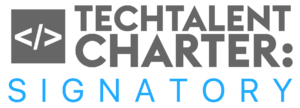Branding Yourself to be ‘Headhunted’: Part 3 – of the series Branding Yourself to be Headhunted
EDITOR’S NOTE: In Part 1 we examined what a “headhunter” does, as well as what he or she does NOT do. To briefly recap, a “headhunter’s” primary mission is to find the TOP-performing talent for a hiring company. These TOP performers will currently be successfully performing in a job similar to, if not identical to, the position(s) a company is trying to fill.
In Part 2 we laid out the 4 steps to brand yourself to be “headhunted”:
• Be Findable
• Be Desirable
• Be Contactable
• Be Selectable
In this week’s blog, Part 3, we’ll explore what it takes to become part of a “headhunter’s” “inner circle.”
“Headhunter’s” fill only 3% of all available jobs. Yes, you read that correctly! A full 97% of ALL jobs are filled through other means. Knowing that, then, why would a job seeker even consider working with a “headhunter?” Here are some key reasons:
- There are a number of opportunities that are available ONLY through “headhunters.”
- If a “headhunter” has worked with a firm for a while and has an established relationship, he or she has an “inside track” that can strongly benefit YOU.
- And, if a “headhunter” can’t place you now, a solid relationship with a “headhunter” will improve your odds, over time, of getting the inside track to some of the best jobs available.
Let me give you some examples of what I’m talking about here:
- We have filled 4 positions with a Fortune 500 company this year that our firm had an exclusive on and, as a result of our exclusive, the positions were never posted.
- We are currently working on a confidential management position. The incumbent isn’t performing at the level required and they want to move him to another role in the company. (Obviously, the company needs to keep this quiet until it happens.)
- And, with another Fortune 500 company, we worked on 7 positions. In this case all 7 were posted and one other recruiting firm was involved. However, we have worked with the client since 2003 so we know their culture, how they think and what they are looking for. We were able to coach our candidates to success and filled 5 of the 7 positions with our candidates.
Calls from good “headhunters” literally have the power to change your life. So once you get the call, you’ll want to do those things that will enable you to become SELECTABLE, i.e., those things that will make the “headhunter” want to select YOU. Here are some key things to keep in mind IF and WHEN a “headhunter” calls—if you want to get on a “headhunter’s” “radar” and indeed become a part of his or her “inner circle”:
Avoid the “shadows on the wall” syndrome
Make no mistake about it: ANY call from a “headhunter” is an INTERVIEW! So be at the top of your game. In “Headhunter” Hiring Secrets, we discuss the “shadow on the wall” syndrome in detail and provide numerous examples of how candidates have quickly removed themselves from consideration forever by saying things or revealing thoughts that quickly and easily scare recruiters and hiring managers away.
Keep money “in check”
Be able to properly and clearly articulate why you would be open to considering an opportunity if it were clearly stronger than what you are doing today. Is it due to a desire for career growth? A desire to change geographic locales? The opportunity to move to a larger, more stable firm (or smaller, more entrepreneurial firm)? Do you feel the need to establish a better, more desirable work-life balance?
But BEWARE: If “more money” is your number one motivator, we probably won’t work with you. Clearly any new opportunity must be competitive in terms of compensation, but experience proves that candidates who have money as their number one motivator for considering a career opportunity are far more prone to accept counteroffers. If I (or a company I represent) think there is a possibility that you will do that, I simply won’t work with you. (And by the way, most “headhunters” take this same approach.)
Translate your skills
As the “headhunter” reveals the career opportunity to you, think on your feet and start “translating your skills.” In other words, be prepared to show how your skills, accomplishments and achievements logically translate into addressing the issues, solving the problems and successfully meeting the challenges inherent in the job that the headhunter is presenting.
Example: We are currently recruiting for a position for a chemical company that provides solutions into hospitals for reducing HAI (healthcare acquired infections). We were speaking with a potential candidate who currently is a medical device representative selling intravenous (IV) equipment and solutions. He immediately began to share with us how vitally important it is for healthcare providers to buy and use the correct IV supplies in order to prevent HAI. And just coincidentally, he currently calls on some of the same people in his current position that he would be calling upon if he were to be the successful candidate for the role we are trying to fill for our client company. In other words, he EFFECTIVELY, IMMEDIATELY and quite CLEARLY translated his skills, knowledge and experience into something immediately relevant to the job at hand!
Do your “due diligence” on the “headhunter”
 Be sure to get the contact information on the “headhunter.” Look up the recruiting firm on the web. How long have they been in business? Is the “headhunter” on LinkedIn AND does he or she have a complete profile? (If a “headhunter” isn’t on LinkedIn, or if they are but have a very sketchy profile, then still move forward but keep your “antenna” tuned all along the way.
Be sure to get the contact information on the “headhunter.” Look up the recruiting firm on the web. How long have they been in business? Is the “headhunter” on LinkedIn AND does he or she have a complete profile? (If a “headhunter” isn’t on LinkedIn, or if they are but have a very sketchy profile, then still move forward but keep your “antenna” tuned all along the way.
I am impressed by the candidates who do their due diligence on us. That means that they will do their due diligence on the client going into an interview and be thoroughly prepared.
Follow up
If you are comfortable with the conversation you’ve had with a “headhunter,” and after having done your due diligence, be sure to follow up with him or her. A “Thank You” email and a LinkedIn invitation are key factors I look for in a candidate. How a candidate interacts with me suggests volumes regarding how they likely will interact with others in the hiring process.
Brand yourself as “top of mind”
If you are not the right candidate for the job that I have contacted you about, but I still feel you are a strong candidate, I will clearly keep you in mind for other appropriate opportunities as they come along. And the more you stay “top of mind,” the easier that is. Sure, you are in my database, but if I don’t remember you or think of you, you will only “bubble to the surface” in a database search.
What you want is to IMMEDIATELY come to mind when I have appropriate opportunities. You do that not by just staying in touch, however. (I get so tired of the “keep me in mind” emails.) What I DO remember are the candidates who provide me industry insight, appropriate referrals and information on companies.
I recently placed a person 5 years after our first contact! During this time, this person was a strong source of industry information and referrals. Thus, he was the FIRST person I thought of when one of the “unadvertised” jobs I mentioned at the top of this blog came open. End result? He was the candidate of choice and his salary in the new role went from $75K per year to $95K per year!
In doing, at the minimum, the things I have mentioned in this blog, you can brand yourself into a “headhunter’s” “inner circle.” You can significantly increase your chances of being the “top of mind” candidate of choice the next time a “headhunter” picks up the phone and contacts you about a great career opportunity. Indeed, YOU could very well receive a call that will change YOUR life—for the better!
Author:
Skip Freeman is the author of “Headhunter” Hiring Secrets: The Rules of the Hiring Game Have Changed . . . Forever! and is the President and Chief Executive Officer of The HTW Group (Hire to Win), an Atlanta, GA, Metropolitan Area Executive Search Firm. Specializing in the placement of sales, engineering, manufacturing and R&D professionals, he has developed powerful techniques that help companies hire the best and help the best get hired.






